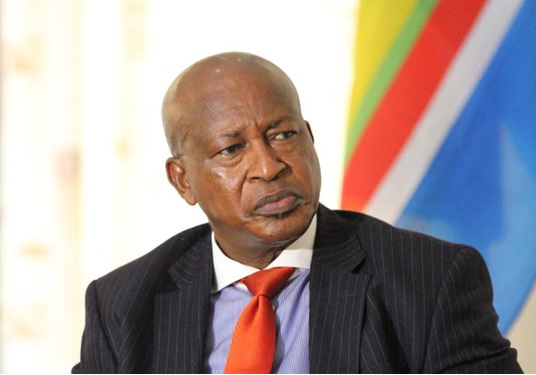The International Court of Justice (ICJ) yesterday decided to proceed with the hearing of the maritime case filed by Somalia without Kenya’s participation.
ICJ in its address to Somalia’s delegation decided to instead rely on Kenya’s written submissions and documents, asserting that they were properly before the court.

Kenya’s station at the court was empty while Somalia had three representatives. ICJ’s president Justice Joan E Donoghue expressed the court’s regret that Kenya had opted to walk out of the case even as Somalia claimed that her neighbour had been given “abundant chances” to argue its case.
The court also rejected Kenya’s request to file additional evidence contained in 176-page document sent to the court on March 11. “The court regrets the decision of Kenya not to participate in the case. The court has documents filed by Kenya and they are part and parcel of the case. Court has now allowed that all documents will be placed on the website,” she said
Earlier, Kenya’s bid to address the international court on its displeasure and decision not to participate in the maritime case against Somalia has failed.
Attorney-General Kihara Kariuki (pictured), who is Kenya’s agent in the case, had requested ICJ judges to allow him to address them on why Kenya was no longer interested in defending itself in the case.
Kariuki in his two-paged letter addressed to ICJ’s registrar Phillippe Gautier wanted 30 minutes to declare its protest. ICJ set five minutes for Somalia to open its case but Kenya wanted to address the court before Somalia.
“In view of the foregoing decision by Kenya not to participate in the hearings, Kenya humbly requests the court to afford its agent a 30-minute opportunity to orally address the court before the commencement of the actual hearings,” wrote Kihara.
In its opening statement, Somalia accused Kenya of exploring oil in the contested area. According to its representative, its negotiations with Kenya had collapsed and it is only the court which could settle its differences.
“Only with the court’s assistance can the ambers be broken. We are deeply concerned that Kenya has decided not to appear in this hearings. This is inconsistent with Kenya’s obligation to the charter. It is also inconsistent with the rule of the law. The court has been generous to Kenya, it allowed postponement of this case three times in an interval of 18 months,” Somalia argued.
According to the Horn of Africa country, the maritime issue is core to its development plan adding that there was need for the court to pave way for it to protect is territory.
The court heard that when Kenya and Somalia met in 2014, the two countries could not reach an agreement on which way to mark the boundary.
“Kenya has been afforded due process in abundance. The defiance of Kenya cannot stop the court from conducting its due process and deliver its final judgment which is binding to the two parties. That judgement is important to Somalia as it will help us to secure Somalia’s resources and exploit it in a way of that benefits our people. Somalia has never agreed that the line should flow at the parallel of latitude. It has been made in Kenya and for Kenya, no tribunal has adopted such,” the court heard.
The court is composed of justices Donoghue, Kirill Gevorgian, Peter Tomka, Mohamed Bennouna, Antônio Augusto Cançado Trindade, Abdulqawi Ahmed Yusuf, Xue Hanqin, Julia Sebutinde.
Other Judges are Dalveer Bhandari, Patrick Lipton Robinson, James Richard Crawford, Nawaf Salam, Iwasawa Yuji and Georg Nolte.
Explore all options
Kenya also relies on the African Union (AU) border programme sealed on March 25, 2010 in Addis Ababa, Ethiopia. The African States agreed that in case of border dispute, they should explore all peaceful options, including recourse to negotiation, mediation, conciliation, inquiry, regional and international arbitration.
The meeting which was attended by ministers from different ministers also ratified that each country will respect each other’s borders, including maritime.
Following the agreement, Kenya turned to AU for mediation of the dispute but Somalia objected saying that it already had a case before the ICJ.
Source: The Standard


